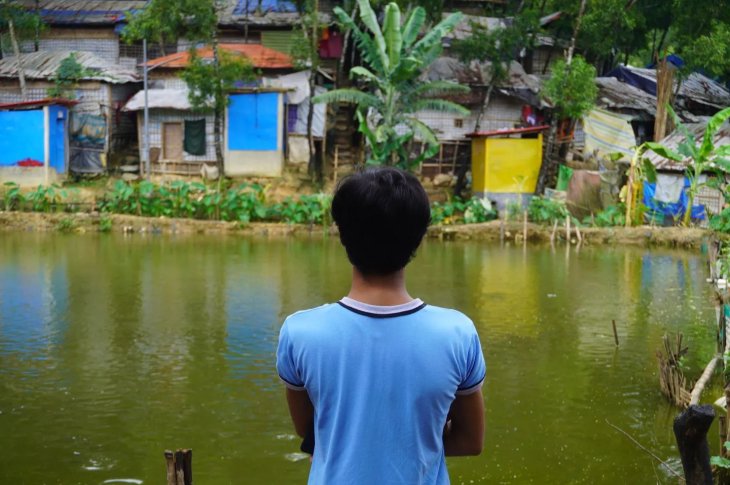Without access to education, work, healthcare, and citizenship, the Rohingya are calling on the world to act.
The start of the brutal massacre of the Rohingya people in Myanmar marks its anniversary on 25 August. It has been five years since thousands of men and children were piled up by the Myanmar military, many viciously slaughtered or burned to death.

Photo: Abdullah Khin Maung Thein. With permission.
Countless women were gang raped and molested by soldiers as the world watched an endless stream of traumatised and severely injured people flee to the Bangladesh border to escape the carnage behind them. As they walked, thick smoke filled the sky as their villages in northern Rakhine State turned to ash.
Conservative estimates say at least 6,700 people were killed during the first month of the massacre. Of these, 730 were children under the age of five.
Some 400 villages were razed, and more than 700,000 people became refugees in Bangladesh’s Cox’s Bazar, now the world’s largest and most densely populated refugee settlement.
As Rohingya survivors mark the fifth anniversary of that dark moment, what they call Genocide Day, their situation remains desperate.
- Read the full article in the Southeast Asian Globe
- The author has also published on this topic in Norwegian in Bistandsaktuelt
- Marte Nilsen is a Senior Researcher at PRIO